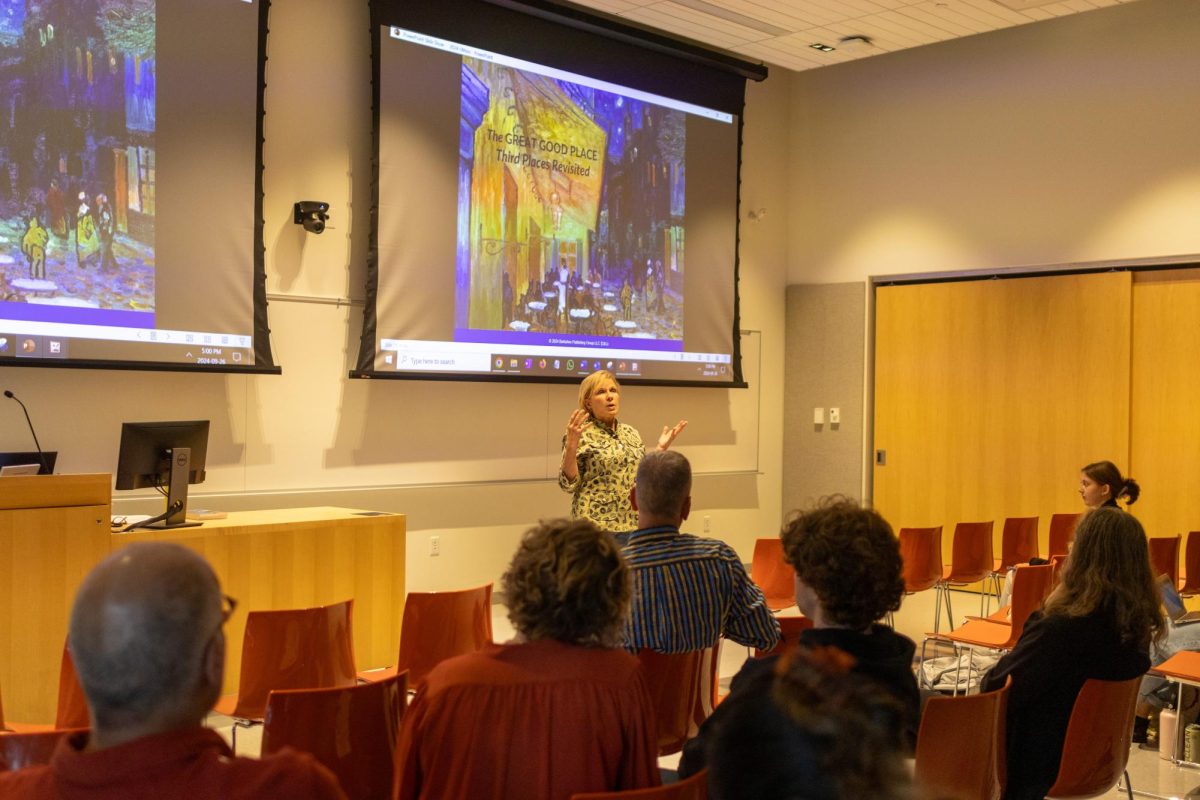This past Wednesday evening, Breath of Fire Latina Ensemble along with the Latinx American Cultural Center, the University of Massachusetts Department of Theater and the Center for Multicultural Advancement and Student Success performed Elisa Gonzales’ playwright “Olvidados: A Mexican American Corrido.”
Breath of Fire Latina Theatre Ensemble is an organization based in Santa Ana that produces and directs ideas from people of Latinx background. Sara Guerrero, the founding artistic director, explains that the Southern California based ensemble is “an organization to support Latinas’ individual performing arts.” “Olvidados: A Mexican American Corrido” is one of many events celebrating Hispanic Heritage Month at UMass.
“Part of our vision is to be incubating space for voices that have been excluded from other organizations,” Guerrero said.
Breath of Fire began with different online projects while adapting to the pandemic, including stage readings and monologues about the Latinx experience during COVID-19. “For a small BIPOC culturally specific ensemble group, it really, really helps,” Guerrero said.
The writer of Olvidados, Elisa Gonzales, an assistant professor in the theatre department for the past two years, reached out to Breath of Fire after having participated in the organization while she was living in California. “I very nervously called [Guerrero] one day…I said ‘hey I have this idea for a play I’m working on and you’d be the perfect director,’” said Gonzalez, describing the moments leading up to the collaboration.
Gonzales’ inspiration for Olvidados came from her great-grandmother’s passing in 2019. She wrote most of the play during 2020 while the world went into lockdown.
The performance for Olvidados: a Mexican American Corrido was performed over the virtual meeting platform Zoom. Speaking on the outreach of online platforms, Guerrero explains “it’s been working for us. The work that’s coming out of it is incredible.”.
The online performance of Olvidados started with the introduction of characters Paula (Elisa’s great-grandmother), Celia (daughter to Paula), and Elisa -all part of Gonzales’ lineage.
The play continues with songs in the Mexican folkloric style of el corrido, which is a traditional form of storytelling These songs all created a socio-political critique of how Mexicans were forced out of the United States for economic purposes during the Great Depression, while facing violence and hatred from their neighbors.
Throughout the play, lyrics introduce topics such as re-patronization. People being sent back to Mexico would need to re-adapt to Mexican culture after adapting to American culture. Furthermore, lyrics such as “Cansada de tanto esperar un sueño que no va a llegar” (“tired of waiting so long for a dream that will not come”) and “I’m tired of living fear, I’m tired of living a dream” explore the characters journey from moving out of the United States to moving to Mexico.
The play ends with the line “to bring these sad stories into existence so they are never forgotten.” Leaving the audience with insight into the socio-political critiques made throughout the production.
After the play, a Q & A session took place. Anya Klepikov, an assistant theater professor, asked Gonzales “I’m curious what surprises have happened for [Gonzales] in the development process, where has the play been pulling you that you might have not expected?”
Gonzales responded by explaining how she only had five songs at the beginning of the production but then it evolved into a total of 10 songs at the end. “Music is what drove people forward and people connected to the production was the involvement of music,” Gonzales said. Guerrero expanded on this thought by adding “this could be a stage, an album, a radio show. Music takes shape.”
When asked about what students of the University should take away from the production of Olvidados, Gonzales responded “we’re bringing a different aesthetic that is not normally seen over here. I think we’re sharing a story that a lot of people don’t know about. I also think it’s a wonderful opportunity for our students to be involved in the process from the re-writes to the workshop production and get to experience a brand-new play being brought up to its feet and seeing that process.”
When expressing her opinion about Hispanic heritage month, Guerrero said that she appreciates the acknowledgement, but sometimes struggles with the concept. “I love that we’re acknowledged, but I think that sometimes it just depends on where it’s coming from or what it means or its correlation…I’m Latina every day!”
“Olvidados: A Mexican American Corrido” will be showcasing a full production in the Curtain Theater in the spring on April 7 and 8 at 7:30 p.m., and on April 9 at 2 p.m.
Ariana Gonzalezcan be reached at [email protected].




















